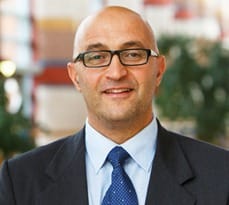Family businesses are a great fit with the Circular Economy concept, as they are linked by the need to preserve wealth, resources and longevity, argues Dr Khaled Soufani of Cambridge Judge Business School.


The Circular Economy is a concept of vital importance to sustainability and tackling climate change, and family businesses should therefore play a key role in advancing pivotal Circular Economy goals of recovery, recycling and reuse.
The common factor that links a Circular Economy model and a family business is the desire and need to preserve wealth, resources, longevity and activities in a way that contribute to the business, community, and society at large. Family firms in particular need to incorporate the Circular Economy’s focus on optimisation and longevity in resource utilisation, to create intergenerational sustainability that enables a family firm to grow and continue to create wealth for future generations.
The long-term thinking of family firms is another reason why family businesses and the Circular Economy are a good match. Many family firms possess an essential dynamism and willingness to take business risks, and they provide opportunities for growth at times when larger companies may restructure, outsource, and downsize to meet short-term stock market expectations. Attaining long-term sustainability objectives are central to family business success, and such sustainability is enhanced through a multi-generational approach.
The Circular Economy concept is gaining increasing attention in academia, industry, finance and policymaking as the realities of environmental change become more apparent. Traditional “linear” growth models tend to exploit resources without constraint to achieve production goals and meet market demand, so redesigning this economic model is imperative if we are to meet meaningful sustainability targets.
The Circular Economy is a disruptive economic model that relates to multiple layers of government policy, businesses operations and strategies, while taking into account consumer taste and preferences. It is restorative and regenerative by design, structure, and objective: products, components, and materials should continuously add, recreate, and preserve value.
One way this is being done is to “servitise” all aspects of production and consumption across the entire chain in order to use as few resources as possible for as long as possible. One vivid example of this is how Netflix and Spotify are replacing the physical production of DVDs and CDs through streaming services.
It is important to note that the Circular Economy is not only about corporate social responsibility or green strategies. The Circular model requires firms to come up with disruptive technologies and business models that are based on longevity, renewability, reuse, repair, upgrade and servitisation – and these fit in well with the goals of family firms.
It can be argued that traditional corporate finance literature largely ignores long-term firm survivability, as such studies focus on measures of performance and profitability linked to the return on capital. These factors are less prominent in family businesses, which focus instead on other factors pivotal to their survival and growth such as effective succession planning and engagement to ensure continuation for multiple generations.
Designing firms around sustainable objectives through a Circular Economy model increases the benefits to stakeholders and hence the aggregate benefit of the family firm. Such orientation toward sustainability can also increase productivity of the firm given the involvement of future generations in decision-making – as creating a more continuous relationship between the founder and future generations increases the probability of long-term success and sustainable wealth.
In summary: a Circular Economy model and family businesses both emphasise the extension of an asset’s life and the optimisation of resource use. They both embrace a multigenerational approach, be it to wealth management or the rejuvenation of factors of production. There is therefore big potential for family businesses to utilise the Circular Economy model to achieve profitability, wealth creation and sustainability to successfully pass the baton to future generations.

